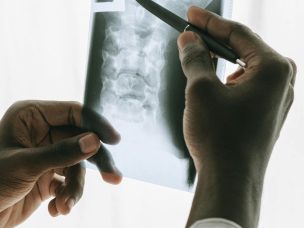OBGYN & Women’s Health
Mortality Up for Breast Cancer Diagnosed Five to <10 Years After Childbirth
Increased risk for all-cause mortality seen with postpartum young-onset breast cancer in women with germline BRCA pathogenic variants Young-onset breast cancer (YOBC) with germline BRCA pathogenic variants (PVs) is associated with an increased risk for all-cause mortality if diagnosed within 10 years after childbirth, according to a study published online April 19 in JAMA Network Open. Zhenzhen Zhang,...
Nonhormonal Pharmacotherapies for Postmenopausal Vasomotor Symptoms
Nonhormonal pharmacotherapies that are effective in treating postmenopausal vasomotor symptoms include serotonin–norepinephrine reuptake inhibitors such as desvenlafaxine and venlafaxine. In a recent literature review, these pharmacological treatments were found to be safe, efficacious, and well-tolerated. Approximately 60–80% of menopausal women experience vasomotor symptoms during the initial 7 years of the onset of menopause, which have...
Healthcare Cost Comparison in Treated versus Untreated Menopausal Women
A retrospective study found that the total healthcare costs in menopausal women treated for vasomotor symptoms were moderately greater compared to those of untreated menopausal women Vasomotor symptoms are the predominant symptoms among menopausal women; however, these mostly remain untreated. While hormone therapy is the commonly administered treatment option, the lack of compliance with this...
Effect of Dietary Supplementation on Vasomotor Symptoms in Menopausal Women
A retrospective study reports that dietary supplementation with myo-inositol, cocoa polyphenols, and soy isoflavones positively affects the metabolic profile and vasomotor symptoms of menopausal women with metabolic syndrome. Hormonal changes occurring physiologically during the menopausal transition are associated with an increased risk for metabolic disturbances and vasomotor symptoms. One of the complications of these changes...
Association of Menopausal Vasomotor Symptoms With Fracture Risk
While the presence of vasomotor symptoms is associated with low bone mineral density among postmenopausal women, it is not related to an increase in the risk of fractures, according to the findings of a new literature review. Vasomotor symptoms affect the quality of life of postmenopausal women. Other health complications associated with the menopausal transition...
Coexisting Generalized Anxiety Disorder and Severity of Perimenopausal Vasomotor Symptoms
Compared to the general population, the incidence of anxiety in perimenopausal women was relatively greater and was associated with impaired quality of life in perimenopausal women in a questionnaire-based study. Vasomotor symptoms in perimenopausal women have a significant effect on the quality of life of perimenopausal women. In addition to these symptoms, perimenopausal women also...
Deregulation of USP7 Activity and Radioresistance of Breast Cancer Cells
The deregulation of ubiquitin-specific protease 7 activity increased DNA replication stress in an in vitro study, which was found to disrupt the DNA repair process during the S phase of the cell cycle. Aberrant expression of ubiquitin-specific protease 7 (USP7), a deubiquitinating enzyme, is involved in tumor progression. This is due to altered DNA damage...
Saraca asoca Methanol Bark Extract and Triple Negative Breast Cancer
Saraca asoca methanol bark extract had a selective anticancer effect on the estrogen-receptor subtype of triple-negative breast cancer in a cell culture study. The anticancer effects were attributed to phytoestrogens in the methanol bark extract, particularly quercetin. Saraca asoca has been found to have anticancer effects related to the presence of phytoestrogens in the methanol...
Role of 17β-Estradiol in Promoting Metastasis in Triple-Negative Breast Cancer
17ß-estradiol promotes metastasis in patients with triple-negative breast cancer. A cell culture and mouse model study demonstrated that this process may be mediated by the calpain/YAP/ß-catenin signaling axis. The absence of estrogen and progesterone receptors and human epidermal growth factor receptor-2 characterizes triple-negative breast cancer (TNBC) cells. The estrogen 17ß-estradiol, or E2, promotes the proliferation...
More Medical News













